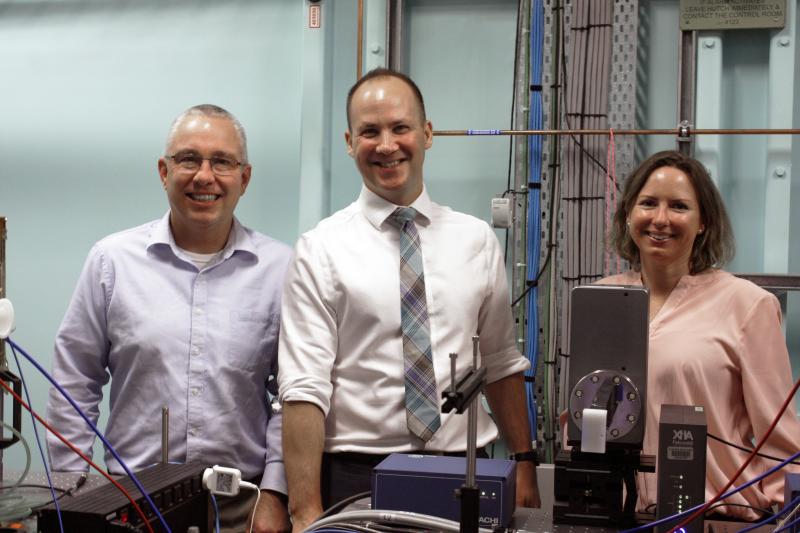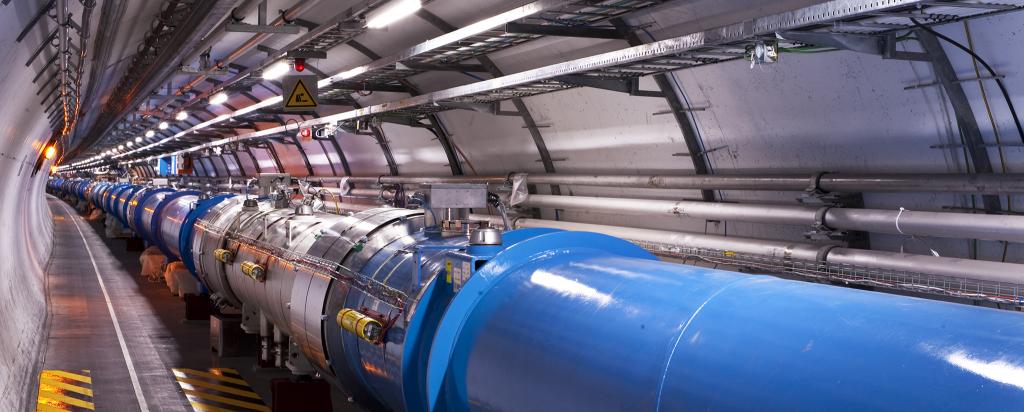

Published on the 5th July 2019 by ANSTO Staff
After careful selection, three Australian science teachers are set to fly to Geneva today after winning positions on the International High School Teacher Programme at CERN.
CERN is a world-renowned facility on the frontier of nuclear physics research and home to particle accelerator the Large Hadron Collider (LHC).
Sydney teacher, Paul Looyen, Rachel Alison Schnitzerling from Brisbane and Coffs Harbour’s Chris Bormann were selected by ANSTO and the Australian Science Teachers Association, (ASTA) to attend the programme.
Ahead of jetting off, the teachers today attended Australia’s own particle accelerator, ANSTO’s Australian Synchrotron in Clayton, Victoria, for the final preparations.
Equipped with jackets, the teachers learnt about Synchrotron Science and ANSTO's contribution to the international particle physics community,
“Each of these teachers are set to gain extraordinary insight into how to bring modern physics into the classroom,” Dr Paterson said.
“By participating in this incredible programme, Aussie science classrooms right around the country are set to benefit from the wisdom and training these teachers will be exposed to.
Access to CERN’s International High School Teacher Programme follows funding from ANSTO and the Australian Science Teachers Association.
Sydney teacher Paul Looyen, says the opportunity to learn this science first hand from the experts, will translate to teaching it better in the classroom.
“Science isn’t about learning facts, it’s about exploring the frontiers of our understanding of the world we live in and doing it in a way that shows integrity,” Mr Looyen said.
“As I share my experiences, I hope it encourages my students to develop a love for science and it provides them with the tools to investigate their own scientific questions.
The CERN laboratory sits on the Franco-Swiss border near Geneva, where physicists and engineers use the world's most complex scientific instruments, to study everything from the basic components of matter to the earliest moments of the creation of the universe.
The CERN programme will run from Sunday 7 July to Saturday 20 July 2019, with flights, accommodation and meals all fully funded for the duration of the two weeks.
Media enquiries, please email media@ansto.gov.au